Famara Diédhiou is the West Africa Program Officer at the Alliance for Food Security in Africa (AFSA). He is also one of the producers of a documentary feature film called The Last Seed, which was produced by the Rosa Luxemburg Foundation in cooperation with AFSA, Biowatch South Africa, and PELUM Tanzania. In this interview, Famara discusses why food security is not enough in a country such as Senegal, whose farming practices and dietary consumption have been negatively affected by agrochemical companies. He makes the case for food sovereignty, as well as the establishment of an agroecological approach to farming and rural planning which not only benefits local populations but also facilitates climate adaption strategies. What sort of socio-economic system would create the conditions necessary for this agroecological approach?
You can watch the trailer for The Last Seed here: https://www.youtube.com/watch?v=dForPtgxFXY
You can learn more about the documentary film The Last Seed here: https://www.thelastseed.org/
Talia Baroncelli
Hi, I’m Talia Baroncelli, and you’re watching theAnalysis.news. Today I’ll be joined by Famara Diédhiou to speak about food sovereignty in Senegal as well as different agroecological methods in farming. If you enjoy this content, please go to our website, theAnalysis.news, and hit the donate button at the top right corner of the screen. You can also get on our mailing list so that you’re informed every time a new episode is released. Also, go to our YouTube channel, theAnalysis-news. Like all the videos you want to watch, hit the subscribe button, and hit the bell; that way, you’re notified every time a new episode is published. See you in a bit with Famara.
Joining me now is Famara Diédhiou, he is the Program Officer for West Africa at the Alliance for Food Sovereignty in Africa. He is the producer of a recent documentary feature film called The Last Seed, which was also produced by the Rosa Luxemburg Foundation, together with the Alliance for Food Sovereignty in Africa. So thank you so much for joining me, Famara.
Famara Diédhiou
Thank you, Talia. How are you?
Talia Baroncelli
You’ve had so much experience working in rural planning and in small-scale farming in Senegal. I know you’ve had over 12 years of experience working on these projects. I was wondering what your own personal view is on how important food sovereignty is in African countries, particularly given the context of European colonialism, which has plundered Africa’s resources for so many centuries on end.
Famara Diédhiou
Yeah, strong, great question, and a very large question as well. On the issue of food, one side of it is what is said in the media by policymakers. On the other side of it, which is, for me, more relevant, what communities, people, and citizens are living day to day. I will take it from not only my childhood but where I’m coming from, for instance, my village, and the same could apply to many other communities in Africa, not only Senegal.
There was a time when I would say at least 75% of what you eat, you were able to produce it by your own. If you were not able to produce it on your own, it was very nearby that you could have access to it. Those types of products, there was a way to cook them. There was a way, if I can even say, to eat them, depending on your, if I can call it, diet. Not everything you are going to eat can you eat at any time. There are things you will eat at a certain part of the day. There are things you will eat at a certain part of the year, and so on. We are about to have a standardized way of eating, completely disconnecting us from our references of how food, agriculture, and how a community should be.
This issue, of course, it’s happening in most of the places I know. Here is a small example. Look at the early years of the 2000s; there are places, if you go there, you wouldn’t see packages. If I say packages, the packaging of food, meaning bags, big bags, or boxes that were coming to package the food people were eating. People were just eating what they produced around them. Now, if you go to those places, all the trash, where they throw wrong material, what is not good, is full of plastic, is full of empty packaging. This is real proof and evidence of what people are eating, which is no longer coming from their own community.
The issue of food sovereignty is crucial. It’s real. It’s threatening our communities. Where it’s harmful is that more and more, you can easily hear some populations saying, “No, you don’t need to cultivate now. You can go and buy it in the shop.” It means I’m not going to work for my food. I will work for a car. Then my food, where is it coming from? How is it produced? I don’t care. Solving this new trend of our relationship with food is something that is what we call regaining our food sovereignty. I don’t know whether you get what I mean by that.
Talia Baroncelli
Yes.
Famara Diédhiou
We are losing control of our food: the soil, the seed, the work we have to do ourselves, and what we should eat. All of this is slowly disappearing, and we need to regain it. By regaining it, it means we are recovering our food sovereignty.
Talia Baroncelli
Based on what you’ve said, we can assume that because of industrialization, people are separated or alienated from the land. They’re alienated from the food that they’re consuming, from the seeds even. So I wonder, these other approaches like agroecological approaches, which your organization would support, they’re more focused on smaller scale farming. But is this small-scale farming enough to meet the food needs of people, like the demand? Can it be scaled up, or is it something that has to be kept at such a small level?
Famara Diédhiou
In Africa, at the minimum, 50% of the population depends on agriculture. If I say agriculture, it’s not only farming crops; it’s both pastoralism, fisher folks, and crop production. A minimum of 50% of the population relies on that. In that population, most of them are small-scale producers. Statistics have shown that more than 70%, around that, of the food that is consumed or produced in Africa is produced by those people: small-scale fisheries, pastoralism, and small-scale farmers.
What does it mean? It means that there is a potential there. Unfortunately, most of our policies don’t support that; it doesn’t recognize the strength. They’d rather go for the narrative that’s saying that we need to scale it up. On the other hand, it doesn’t mean that in agroecological practices, you can’t scale up the level of production. There are a lot of examples, including in export products, where big companies were able to follow the requirement of agroecological production, and they met it.
What is needed is first to recognize that the majority of African producers or African farmers, those working in the primary sector, most of them are small-scale. That’s where we need to add value and support. If we support them, then it can take the level of production to another level. Small-scale production doesn’t mean that the level of production is small.
Here are two examples. For those who want to sell cacahuètes, for instance, or peanuts for export, most of them rely on small-scale producers. Hence, they are able to produce enough until exported. In a country like Senegal, Mali, and so on, rice and millets are part of the most consumed cereals. Most of those products are produced by small-scale producers or small-scale farmers. There is a potential there. We don’t need to give it a negative connotation when we are talking about small-scale farmers. I was impressed, not impressed; I was strongly surprised when in a meeting in Germany, I remember the country, we were talking with some organic farmers, and one of them was saying, “I’m a small-scale producer with 250 hectares.” I could not believe it. I said, “What?” When he realized that I was surprised, he said, “No, I’m small. This guy has over 400 [hectares],” and they call themselves small-scale farmers. In Africa that is not the case.
In a country like Senegal, the average for a small-scale farmer is around two hectares or three hectares, and there is a potential. They can’t feed the world. What you should ask is whether those big companies, agrochemicals, and agro-industries, for years, for decades, they were saying, “We need to feed the world. We need to come up with a food security approach.” Hence, up to date, the number of those who are hungry is getting more and more, higher and higher. So it means what they wanted to give us as a solution is indeed a false solution.
Talia Baroncelli
What has been the role of agrochemical companies and pesticide companies in African countries such as Senegal? I think the film, The Last Seed, focuses on this and shows the nefarious presence of these companies. What are they actually doing, and how are they affecting the actual, maybe, genetic composition of these seeds?
Famara Diédhiou
If you talk about the genetic composition of the seeds, this will call upon the issue of GMOs. In Senegal, I don’t have facts and evidence saying that GMOs are around. I just heard some things about that. What I am sure of is that the agrochemical companies and seed agro-dealers are very present on the continent.
Suppose you go to the northern part of the country, Senegal, where there is rice production with irrigation from the Senegal River. In that case, there is a big quantity of tomato production alongside the Senegal River with irrigation. Most of the seeds they are using, if not all of the seeds they are using, are coming from the agro-dealers. Very few people, very few farmers, are in touch with the Senegalese Association of Peasant Seed Producers. It’s very small inside the seed. What I mean by that is that all the farmers who use those seeds are 100% dependent on agro-input. One hundred percent dependent! When I say agro-input, I mean both fertilizer and pesticides, including the seeds they use every year.
What is the most dangerous about that is that we don’t have enough choice when it comes to rice eating. More or less, there are two or three varieties turning around what we call NERICA. NERICA stands for New Rice for Africa. Where is it coming from? It’s a breed between African rice (O. glaberrima) and Asian rice (O. sativa). African rice used to fall very quickly, and that sativa, something like that, and they mix it up. The fact that African rice is very tolerant to a lot of diseases was completely ignored. The fact that we had various types of rice, including red rice, black rice, brown rice, black and white rice, and so on, was completely ignored. The fact that the diversity of rice enabled us to be able to grow rice in various areas. Not all rice needs a big quantity of water. There is rice that can sustain itself where there is enough water. So all that diversity which lived in some of our cultural way of doing things, I’m very serious about that, is slowly disappearing. In the northern part, it’s industrial agriculture. In the southern part and middle of the country, it’s not industrial agriculture but family farming. It’s for saving the family first before we go to the market. In those parts, NERICA is getting slowly, slowly in, and it’s dangerous.
One last example I’m going to give, in 2007, I went to a village and said, “Okay, we are working on this farmer’s innovation, but please keep your seeds because of this.” One of them, a very wise man, said, “You don’t understand what this boy is saying, but what he’s saying is very important.” This was 2007.
In 2020, during COVID, the same village called me and said, “Famara, we don’t have seeds.” I said, “Which kind of seeds?” “Rice.” I said, “I believe your community is culturally linked to seeds, to rice. It’s not normal that you don’t have seeds.” They said, “We now realize what you were saying in 2007.” I said, “I was in a program, and we were reproducing traditional varieties. The only seeds I have are traditional varieties. If you are happy, I can give it to you.” He said, “Those are the ones we want because the new varieties, NERICA, we are lost on it.” This is a fact. They are trying to rebuild their seed system.
The agro-dealers are, I’m sorry to say, but slowly, in some parts, they are winning the game. They are achieving their goals.
Talia Baroncelli
Sorry if I can interrupt you. Is the issue that some of these seeds, because they’re hybrid or they’ve been changed in some way, that they’re not able to reproduce another batch of seeds past, say, one harvest, and that’s why farmers are then forced to perhaps buy more seeds, and they can’t rely on getting seeds from the harvest that they’ve been sowing?
Famara Diédhiou
Yes. Definitely. We need to recognize one thing. When they come with their hybrid seeds, it’s true, the criteria of those seeds is productivity. Yes, we need to recognize it. It is highly productive, but not forever. During the first two to three years, with all the requirements you put this type of fertilizer, you need to use pesticides at certain times. If you collect the seeds and replant them after two or three seasons, the yield will decrease drastically.
What is worse is most of the farmers are saying, “We cannot do anything with our land now. The land is dead. We need to recover it.” If it’s only production that was linking the farmers to the agro-dealers, this is where the issue is. But there are some other social aspects behind it. Standardization. You can only have one type of rice. The variation is very small. Either it’s a long grain or short grain, but the test generally is only one. It doesn’t mean they culturally value traditional diets and so on.
Talia Baroncelli
How are these small-scale farming methods that you’re speaking about? You said that just because they’re on a small scale doesn’t mean that they’re small. They can encompass large swaths of land, and they can be sustainable. But how can they work toward or help implement strategies to prevent climate change? So climate adaptation strategies?
Famara Diédhiou
Yeah. If you look at the theory of change for the transition to agroecology.
Talia Baroncelli
It’s right behind you, actually. It’s on the picture behind you—the theory of change.
Famara Diédhiou
Maybe this one is for us, but in general, the one we worked on with other stakeholders. When we came and we went to the farming system, we saw the change in terms of agroecology practice. We will start with the farm level. After the farm level, we have a community level. Before the community level, we talk about the landscape: where all the farmers in a village or in a community say this area is where we are going to farm the rice, to grow the rice. There, they have approaches that will fight against water; when the water is depleting the soil, they have techniques to fight against that. When they say how to do so that there won’t be fire coming into that place, there should be techniques for that. Then it goes to the municipality. The municipality will come together with several landscapes and develop a strategy for that. This is just in terms of climate hazards: the force of the wind, the force of the water, and so on.
Now, when it comes to what to grow in order to face climate change, usually people will talk about short-term variety. The one that arrived very quickly and another one that needs time. There is a type of maize, for instance, that within 45 days, you can harvest it. There are others that will need two months, three months, and so on.
So the farmers, from what I know, in one single family, you will find that if they are growing rice, they can grow five different varieties. What is the rationale behind that? First, and usually, they don’t have just a single plot. If a farmer tells you that they have five hectares, it doesn’t mean that you will go to one place and see the five hectares. No. One will be here, two here, three over there until you have five. The fact that they have diverse places is so that when something happens here, it is what you say in English: I won’t put all my eggs in one basket. That’s how they do it. This is in terms of space.
Now, in terms of varieties, they have varieties that are salt tolerant. They can have varieties that can be flat tolerant. They can have varieties that need a very small quantity of water, and so on. This is their strategy to fight any type of hazard. So whatever happens, there will be a place where they can harvest the minimum. These are the strategies.
Now, let’s say that in the case where there are no hazards and everywhere it works, yes, they have workforces at home. All the crops won’t mature at the same time. So they will take their force where it matures first, and slowly they will cover all the spaces without losing everywhere. But if they have only one type and one variety, it will ripen at once. Before they finish the harvest, one-third of all what they have cultivated, the rest will be destroyed either by the wind, either by the birds, or whatever else, or it will fall. So they have a strategy. We just need to recognize it and scale it somewhere.
Talia Baroncelli
What are the policy demands that you think are essential in order to effectuate small-scale farming and to have food sovereignty?
Famara Diédhiou
Yeah. One of our policy demands, including here in Senegal, there is a saying for those who want to change the land policy. They say, “Land for those who can exploit it. We say land for those who want to exploit it.” If you want, you should have access. They should not say if you can, because, for them, I can means I have a big tractor, I have a lot of money, I can build a bridge or a dam, but this doesn’t apply to us. Whoever wants should have access to the land and food rights.
Then we come to agroecology practices. When we say agroecology practices, there are a lot of cases where the land is completely depleted, and there are public programs that are trying to recover the land’s health. The method they are using to recover the land, they are not agrochemical. They use agroecological practices. They never use chemical fertilizers. They use agroecological practices to recover the land that is depleted. So instead of depleting the land because of a type of farming method, yes, use the agroecological method. You don’t have to recover, but you will maintain or improve the soil as you go. We have a program called ‘Healthy Soil, Healthy Food.’
Talia Baroncelli
Well, this policy demand that you speak about, how everyone who wants access to the land should have access to the land, reminds me of a different conception of rights. So a socio-economic prioritization of rights as opposed to other rights frameworks, which, for example, prioritize political voting, access to voting, to elections, to those sorts of political rights, to property and that sort of thing. What you’re talking about seems to shift the framework to other forms of economic rights, which are just as important as owning property or being able to participate in an election. So do you think a whole new system of rights and maybe a new economic framework is necessary to see this agroecological perspective and mechanisms manifest? Is it possible under the current capitalist neoliberal framework?
Famara Diédhiou
No, not at all. I think there is a need for a shift. We’ve been living or experiencing capitalism, one economic vision, for almost a century. When the concept of agroecology came on board, it was not because of farming practices. Agroecology came for, of course, our practices to be changed, not productivity, productivity, productivity without knowing what we are doing, but also as a policy. It’s a social movement; it’s politics. Under those politics, it’s against capitalism.
When we say capitalism, for instance, if you want to farm, to do a farming project, if you go to a bank for them to lend you money, to have credit, the business model that you have to fill in so that they can believe or rely on your project, it’s not done for agro inclusion. It’s done in a capitalistic way of thinking. This one needs to change. What type of finance? What type of investment? What type of vision for an agroecology approach?
We’ve done some research. We are not yet done. What has appeared in a lot of countries, including the [inaudible 00:29:25], is that the finance structure within the bank doesn’t match with agroecological practices or agroecological vision. What should we do next? What should be the solution? Yes, we are still looking. In Burkina Faso, I’ve learned of an experience which could be fine, but we need to dig more and see if it’s the best. Then we scale it up everywhere for the world to come and learn from Burkina Faso.
Talia Baroncelli
I have one last question for you, and that relates to the impact of the war in Ukraine on African countries and on food sovereignty in a country like Senegal. How do you think a country like Senegal should insulate or protect itself from supply chain issues, inflation, or from other global crises?
Famara Diédhiou
Those who know me will laugh when they are watching us. I spent time believing that the world in Ukraine has impacted us in Senegal. Until now, even when I’m talking about it, I’m not 100% convinced that this has really impacted us. This was the real cause of what we are suffering here in Senegal. The very first one, they said that there is no chemical fertilizer for our farmers. I said, “What?” Here in Senegal, we have at least two-three mining industries which have the material to produce fertilizers. How can it be that we depend on Ukraine, a country how many kilometers away? Just one country. Then after, they talk about the fuel. The fuel is more or less $2 a liter. I could not believe it. Then after, everywhere, any single food, commodity, whoever is saying, yes, it’s because of the war in Ukraine. Now, I accept it as it is.
How should a country like Senegal protect itself or prevent such type of situations, which is not nice but bad situations? We call ourselves the Alliance for Food Sovereignty in Africa. This word sovereignty, the concept of sovereignty when I started to work in the early 2000s, I remember policymakers don’t want the concept of sovereignty. They were talking about security. Fortunately, during the issue of Ukraine, we heard the French President, President of France, Macron, saying, “We need to recover our sovereignty.” We said, “Oh,” coming from the head of state. A few months later, our President said, “We need to recover our food sovereignty.” I said, “What? The policymakers are talking about food sovereignty and talking about local consumption, supporting our local industry, and so on.”
What should be done is what we used to call for since we started to talk about food sovereignty. First is the land to the local people. We are not against industrialization, but when it comes to industrialization, we support local companies. Food or products that are needed by the country should be the priority. There are some crops which are just for the external market. I won’t say just for the external market, but I would say maybe the primary target of those crops is the external market. We need the land for local people first.
Second, any company, any industry that is going to work at a local level, owned by the local population, should have first priority and local consumption. Then we build the infrastructure we might need. Finally, then there should be a push-pull strategy. For instance, the government could say, “If Talia or someone wants to build or start initiatives if it has taken into account the five principles or elements of agroecology agreed upon at the worldwide level, they will be tax exempt, tax-free. If they use 90% of them, they will be tax-free up to 10%.” This we should create.
I don’t know what you call it in English; where there is a public demand, public push.
Talia Baroncelli
A referendum?
Famara Diédhiou
No. When the country wants, for instance, to buy food or rice for a school feeding program, for instance, they could say, “Our priority is for the product that is agro-ecologically made.” Then people will go there, and they say, “If someone has done an innovation towards agroecology, there will be something like a price.” Now, for innovation in agriculture, in terms of packaging, in terms of feeding and so on. So a push-pull, intensive buys, and so on. This needs to be done for the people to recover its full sovereignty. Otherwise, wherever there is no one, usually, if you dig behind it, there is the food industry behind it, and this doesn’t support us.
Talia Baroncelli
You make a very interesting distinction between food security and food sovereignty because the term security always begs the question, security for whom? Is it for the state? Is it for the people, for the local populations? Or is it, in fact, security for other foreign powers which are so interested in getting certain exports from a country or acquiring resources? So I think the way you explain sovereignty really shifts the focus to control over local resources in such a way that benefits the local populations.
Famara Diédhiou
Yeah, the local population first. Not only the food but including the economy. I’ll just give one example. I like facts. In Ghana, around 2013-2015, around that, in the middle part of Ghana, it’s called the Middle Belt, similar to the US. That year, in the northern part, maize production was a catastrophe and not good. At the same time, the production of maize in the Middle Belt was at its top. They never had this level of production. As the world is, black, white, that clear, and so on, so it was easy to solve. Just take what is in the Middle Belt and take it to the north of the country. But there was a strong propaganda, very, very, very strong propaganda, saying that the maize in the Middle Belt is infected by aflatoxin. I can’t believe it. To see the people in northern Ghana saying that they were facing hunger, they went to the U.S. and brought maize from this U.S. aid to feed the north of Ghana. The Middle Belt remained there with their maize.
I really wanted to do some research aboutaflatoxin, where aflatoxin appears. I had a lot of discussions with some scientists and academics about aflatoxin. Yes, it can be there, but I have a hypothesis in my head. It’s saying that this aflatoxin can appear at a big rate where it’s the hybrid seeds. So the traditional seeds or peasant seeds, I’m not sure if the aflatoxin could have occurred this often. We’ve grown in rural areas. We’ve been farmers for part of our lives. All that we are talking about, the cause or the impact or the consequence of the aflatoxin, we did not face it. At that time, we were not eating all of those hybrid seeds; that depends on inputs here. So if I have money, if I have time, I will put some research on that to see where aflatoxin is, we see more aflatoxin here or there, which practices and so on. I need some more proof from people to see.
To come back to your question about food security, yes, our people first. Local consumption first. Local diet first. Then we go for other things. We know that we are globalization, yes. We are travelling here and there. Our food is travelling here and there. There are some things like if I go to the airport with my passport, the nationals should have a specific treatment. When it comes to food, the nationals also should have a specific treatment before we go to the others.
Talia Baroncelli
Famara Diédhiou, it was really fascinating speaking to you. I’m very happy that you were able to make time to speak about food sovereignty and the work that the Alliance for Food Sovereignty in Africa has been supporting. Thank you very much.
Famara Diédhiou
Thank you, Talia. My pleasure.
Talia Baroncelli
Thank you for watching theAnalysis.news. If you enjoyed this content, please go to the website, theAnalysis.news, and get on the mailing list; that way, you’re informed every time a new episode is released. You can also donate to the show and go to our YouTube channel, theAnalysis-news. Hit like and subscribe to all the videos. See you next time.
Podcast: Play in new window | Download | Embed
Subscribe Apple Podcasts | Spotify | Android | iHeartRadio | Blubrry | TuneIn | Deezer | RSS
Never miss another story
Subscribe to theAnalysis.news – Newsletter
“Famara Diédhiou has over 15 years of professional experience working mostly in rural development in African countries, particularly in the establishment of community seed and cereal banks, organizing women’s groups for urban-rural partners. As a West Africa-based program officer under the Alliance for Food Sovereignty in Africa (AFSA), Famara Diédhiou is active in various networks to advance the food sovereignty struggle and African-driven solutions.”
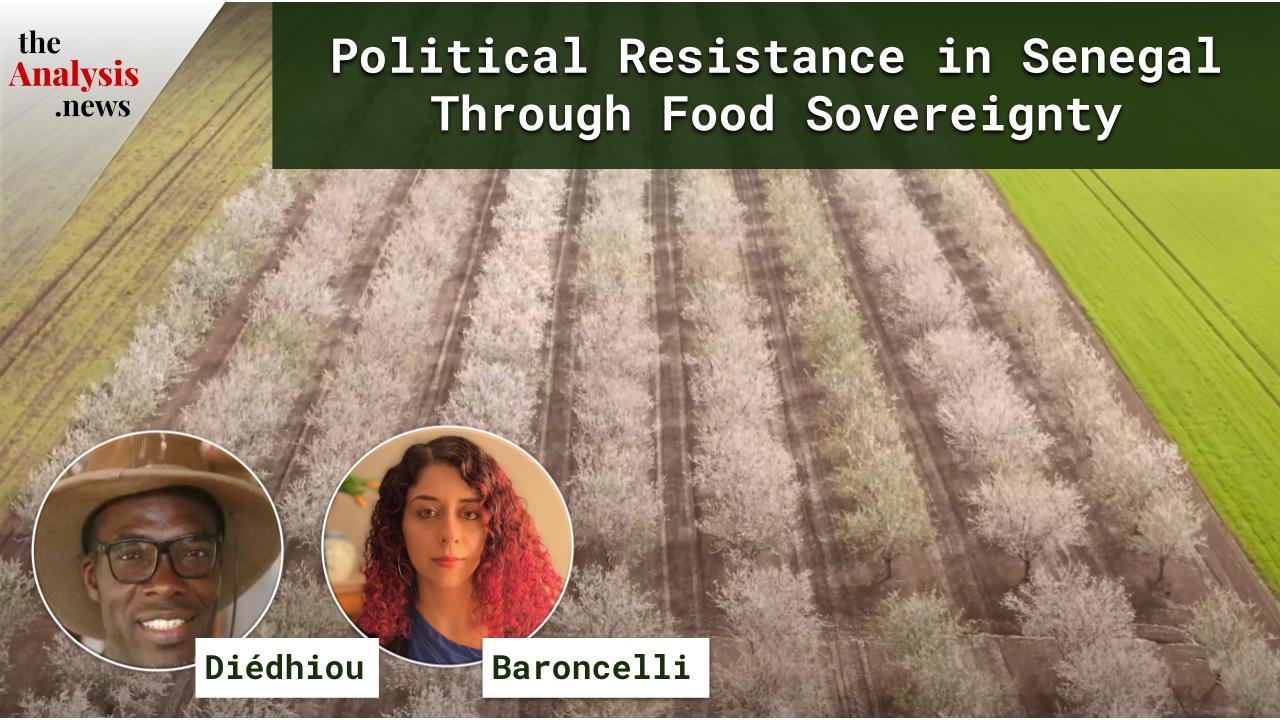









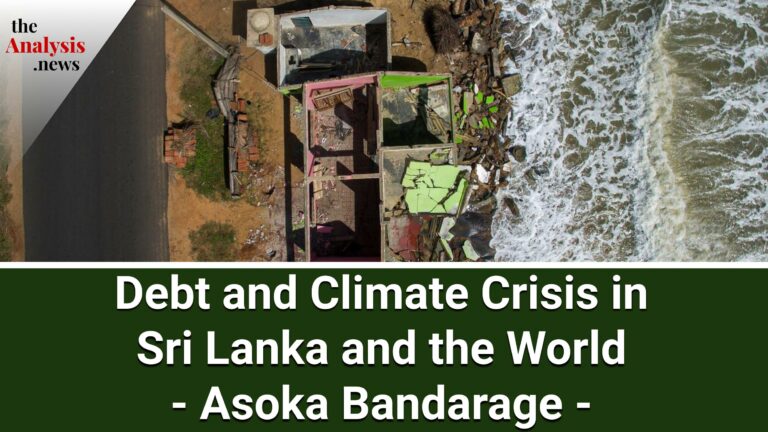
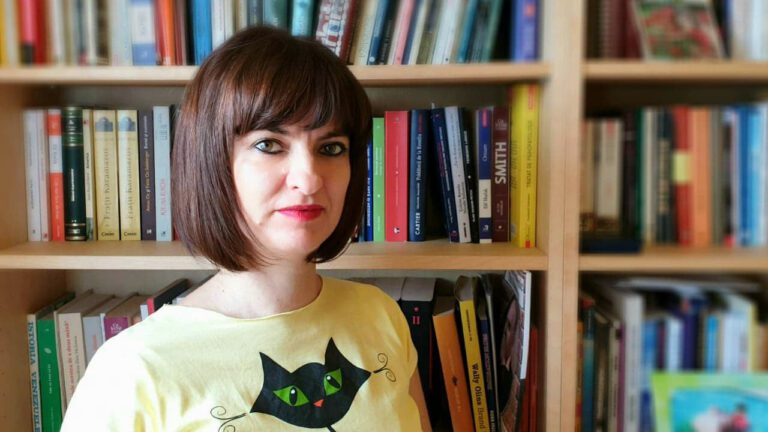
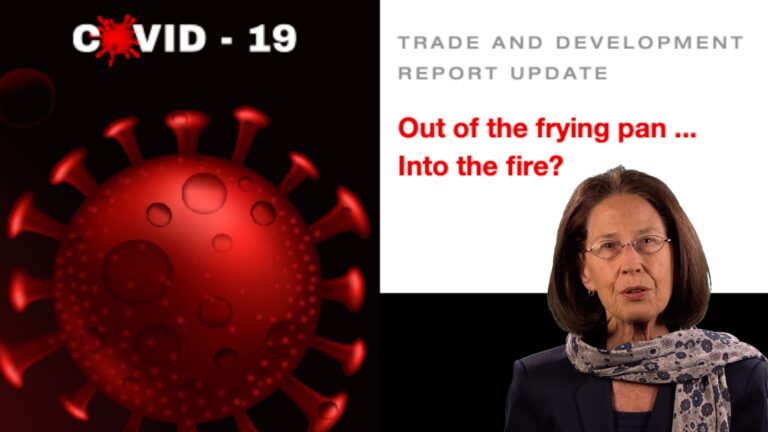
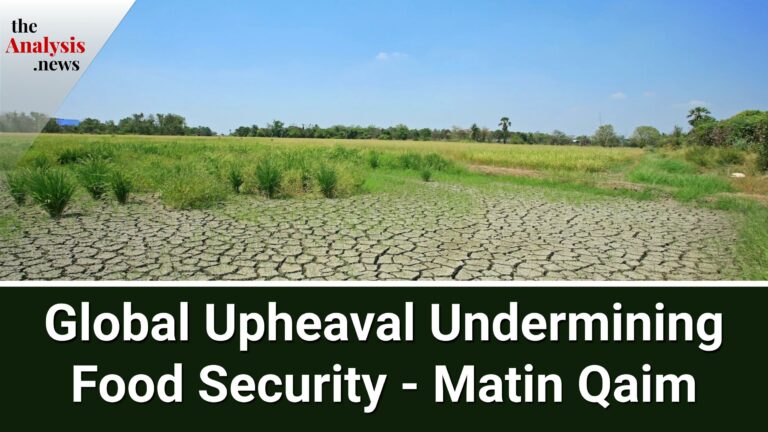
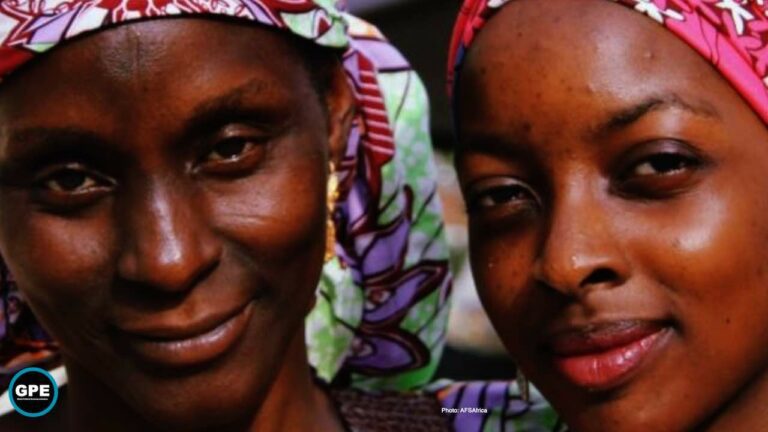
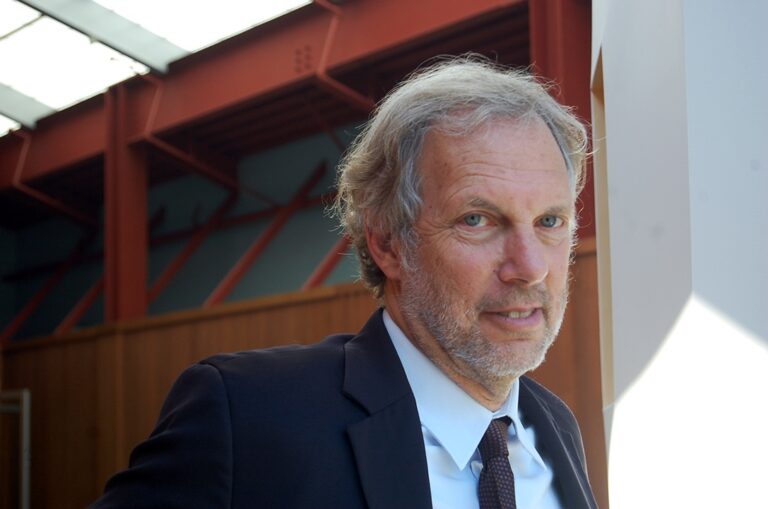
This is a big deal and it is not just happening in Africa. Last year, I talked to a seed company manager in the US and he was distressed that seed companies were becoming consolidated under the control of a few large companies. These large companies primarily offer hybrids and gmo seeds that have some advantages.
Hybrid vegetable seeds offer disease resistance and some produce nicer quality. At the same time, any private gardener can still buy a wide array of open-pollinated seeds and then save their own seeds at harvest. My personal experience has been that when I save my own seeds, they seem to germinate at a higher rate. Another important issue is that recent research has shown that the food value of our vegetables is declining. Some say that is because the soils contain less nutrients and that translates into vegetables having less nutrition. At the same time, other research shows that many hybrid varieties contain less nutrition than the open pollinated varieties. For me, the taste and general appeal of open pollinated tomatoes and other vegetables is far superior to the hybrids.
So, this is a critical issue world-wide. Thanks for doing this story.